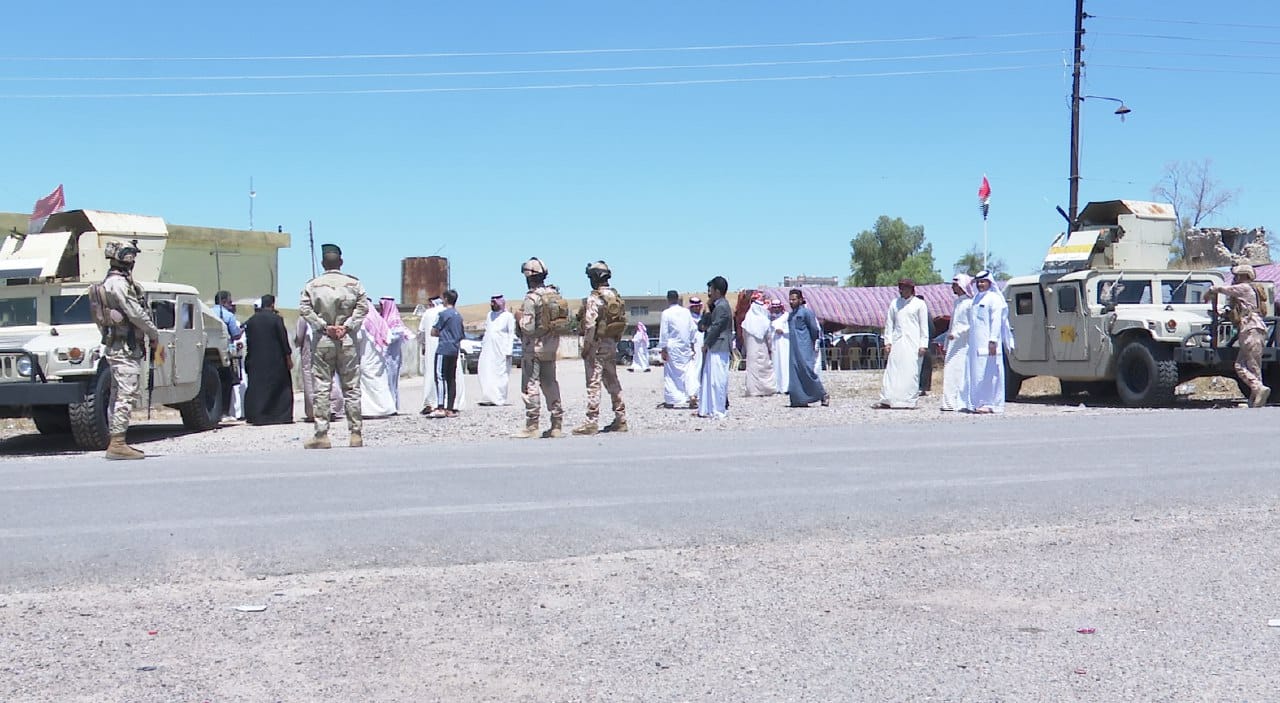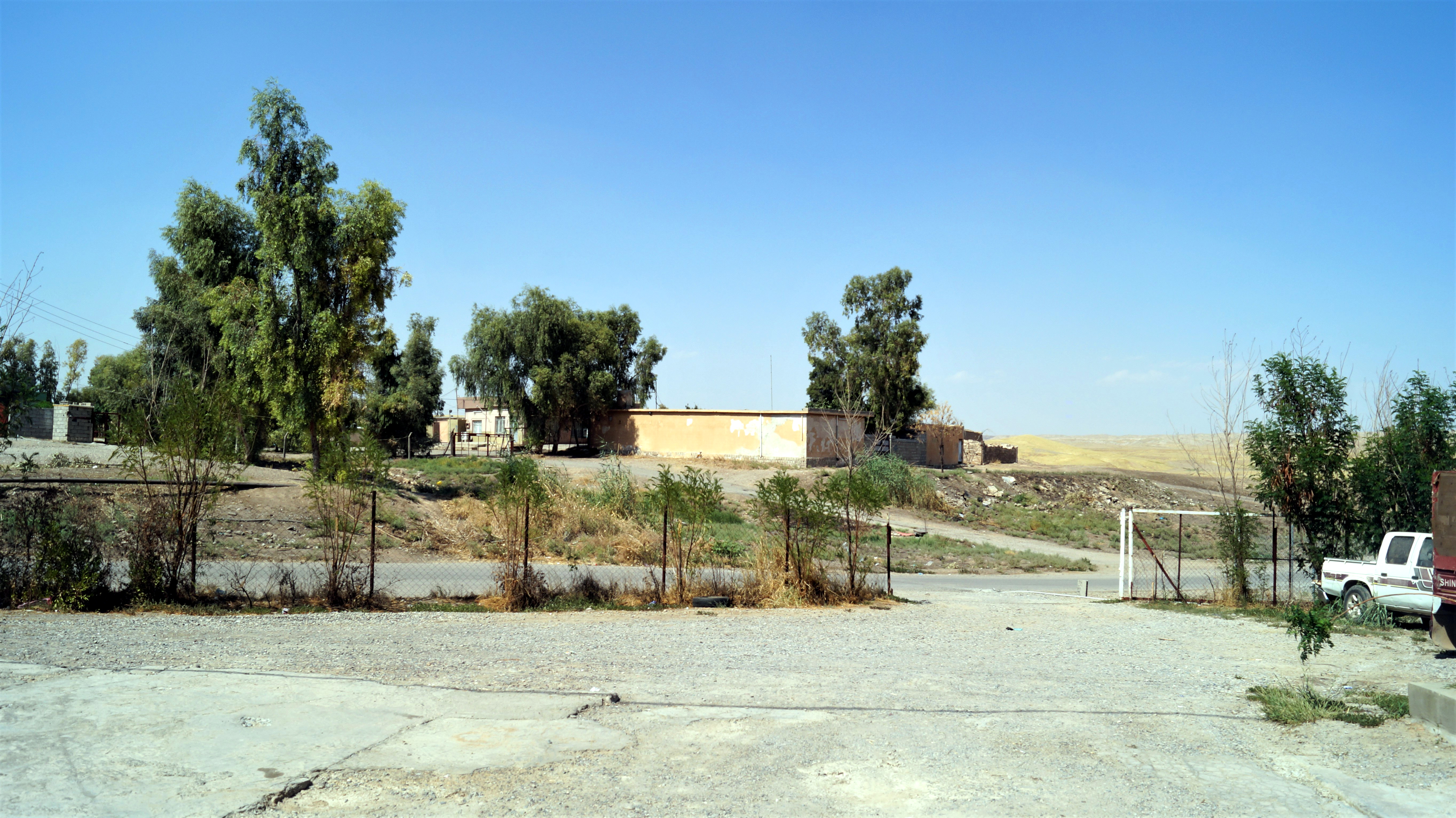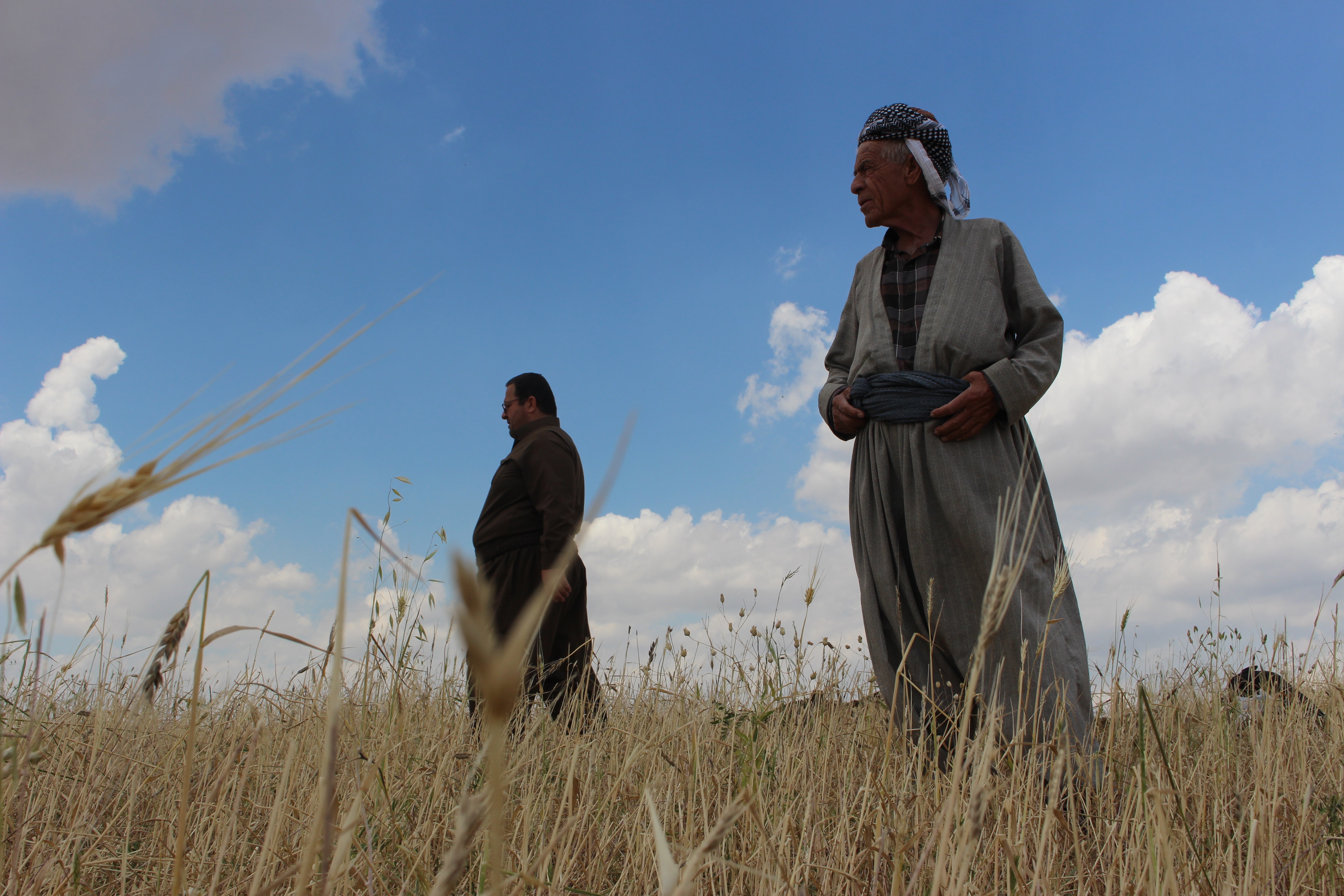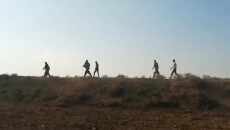At a time when Kurdish officials in the Iraqi government and the House of Representatives announced that the farmers of Palkana village of Kirkuk Province would be allowed to harvest their crops and stressed the removal of the tents of the protesting Arab farmers, but neither the tents were removed nor the harvest resumed.
Shakhwan Abdullah, Vice President of the Iraqi Parliament, a member of the Kurdistan Democratic Party KDP led by Masoud Barzani, stressed in a statement published on May 11 that “starting from today, Kurdish farmers will begin harvesting their crops and the tents that Arabs set up in the village will be removed,” basing this, according to him, on a decision from the Iraqi Prime Minister.
The statement coincided with the circulation of some news in the Patriotic Union of Kurdistan media, in which it was confirmed that the Iraqi Minister of Justice, Khaled Shwani, met with the Iraqi Prime Minister and it was decided to allow Kurdish farmers to harvest their crops.
“At the request of Khaled Shwani, the Iraqi Prime Minister assigned the Operations Command to address the problem and allow farmers to harvest their crops,” according to the Patriotic Union of Kurdistan PUK media.
Muhammad Amin, a representative of Kurdish farmers in Sargaran district, told KirkukNow on Tuesday, May 15, “Until now, the army has not allowed us to harvest. Obstacles continue, and the tents of Arab farmers in Palkanah have not been removed, and they do not allow us to harvest our crops.”
A section of agricultural land in the Sargaran sub-district of Dibis District - west of Kirkuk - especially the villages of Palkana, Kabla, Kharabah, Sarbashakh and Shinagha, whose ownership has not been settled, and the disputes over these lands go back more than 50 years.
During the period of Arabization campaigns carried out by the Baath Party headed by Saddam Hussein, Kurdish and Turkmen villagers were subjected to deportation and their lands were distributed to “Arabs Settlers” under agricultural contracts.
After the fall of the Baath regime in 2003, the deported Kurdish and Turkmen families returned to their areas, while the Arabs left their lands and returned to their original areas in central and southern Iraq.
Whenthe Iraqi army returned to the area in 2017, the Arabs returned again and demanded compensation and the restoration of their lands.
In the seventies of the last century, according to a decision of the Supreme Revolutionary Command Council and the Northern Affairs Committee during the rule of the Baath Party, most of the agricultural lands belonging to Kurdish and Turkmen farmers were distributed in several regions of Kirkuk with agricultural contracts to Arab farmers who were relocated from central and southern Iraq and settled in Kirkuk, as part of the Arabization process and deportation of Kurdish and Turkmen families.
Ownership of agricultural lands is one of the complicated issues in the northern, oil-rich, multiethnic province of Kirkuk and other disputed territories that have remained suspended for 20 years and between Kurdish, Turkmen and Arab farmers.
The Kurdish and Turkmen farmers claim they are the real owners of the lands confiscated by Saddam regime and given per contracts to Arab settlers.

Army forces deployed inside the village of Palkana, after Arab farmers raided the village to prevent Kurdish farmers from harvesting their crops, Kirkuk, May 2024. KirkukNow
In total, the issue of ownership of 6,000 hectares of agricultural land in five villages within the boundaries of Sargaran has not been resolved.
The representative of Kurdish farmers in Sargaran stressed through KirkukNow that the Kurds have documents proving their ownership of their lands and are not ready to give their lands up under any decision.
This comes as Ahmed Ghazal, one of the sheikhs of the Shammar clan, said in a previous statement to (KirkukNow), “We have official documents from the court, the Department of Agriculture, and other concerned parties. We inherited these lands from our fathers and grandfathers, but the Kurdish families in the village do not have any documents.”
Since 2017, the Kirkuk Court has settled several cases related to the ownership of agricultural lands in favor of Arab farmers, including the renewal of agricultural contracts dating back to the period of Baath Party rule, but a section of Kurdish farmers say that the Arabs used forged documents.
In May 2019, Rakan Saeed al-Jibouri, the acting governor of Kirkuk, said in a press conference that “the current residents of the village of Palkana are people of Mahabad, Iran,” and defended the Arab families’ efforts to return.
Since 2017, there have been dozens of attempts by Arab tribes to return and settle in the village.
Palkana village is located northwest of Kirkuk Province, inhabited by approximately 25 families, with a land area of more than 60 thousand dunums. Its lands are fertile and rich in oil.
Property disputes between Kurdish and Arab farmers renew every year during the harvest season in May, leading to the army intervening and preventing farmers from harvesting.
In May 2019, it was decided in a joint meeting that included the acting governor of Kirkuk, the head of the Agriculture Committee of the Kirkuk Provincial Council, the mayor of Dibis, and representatives of the farmers of the village of Palkana, to freeze agricultural land, that is, prevent its use by any party, until a legal solution is found and its ownership is resolved.
According to a statement issued at the time by the governor, “Kurdish and Arab farmers agreed,” and this agreement came in exchange for allowing Kurdish farmers to harvest their crops.
The northern oil-rich city of Kirkuk, located 238 kilometers north of Baghdad, is an ethnically mixed province for 1,7 million Kurds, Sunni and Shiite Arabs, and Turkmen. It has long been at the center of disputed territories between Baghdad and Erbil.
In the new cabinet, headed by Muhammad Shia al-Sudani, the Supreme Committee for the Implementation of Article 140 has been reactivated, and one of its main tasks is to resolve the ownership of those agricultural lands.

Palkana village in Sargaran sub-district of Dibis district, west of the Kirkuk Province, Kirkuk, September 2020. Karwan Al-Salihi
The problems then worsened, as Kurdish farmers returned over the past two years to plant the blocked lands with wheat and barley crops.
Wasfi Al-Assi, the emir of the Ubaid tribe and a representative in the Iraqi parliament, expressed in a statement issued by his office on May 11 his support for the Iraqi army.
“We reject the political statements and positions that harm the Iraqi army in Kirkuk, especially while they are performing their duty to prevent the occurrence of tensions or political exploitation of the rights of farmers in the region.”
Assi talked to the media following a statement by the Deputy Speaker of the Iraqi Parliament, Shakhwan Abdullah, in which he accused the army of “preventing Kurdish farmers from harvesting.”
Shakhwan Abdullah pointed out in the statement, “After the army recently prevented Kurdish farmers from harvesting, I spoke with the Prime Minister on Wednesday (May 8) and a letter was issued addressed to the Joint Operations Command in Kirkuk to allow the farmers to harvest their crops, but unfortunately the letter did not reach Kirkuk, for any reason.”
"Today (Saturday, May 11) the Joint Operations Command in Kirkuk received the letter. Starting today, the tents of Arab farmers in the village of Palkana will be removed, and Kurdish farmers will begin harvesting their crops," he added.
Although three days have passed, the decision has not been implemented, while KirkukNow was unable to obtain statements from the Joint Operations Command in Kirkuk.
Palkana farmers are demanding radical solutions, and the Kurdish farmers’ representative, Muhammad Amin, says, “The situation is on the verge of explosion, because only 60 meters separate 100 Arab farmers from 300 Kurdish farmers in protest inside the village of Palkana, with the army and other security forces present to monitor the situation.”






